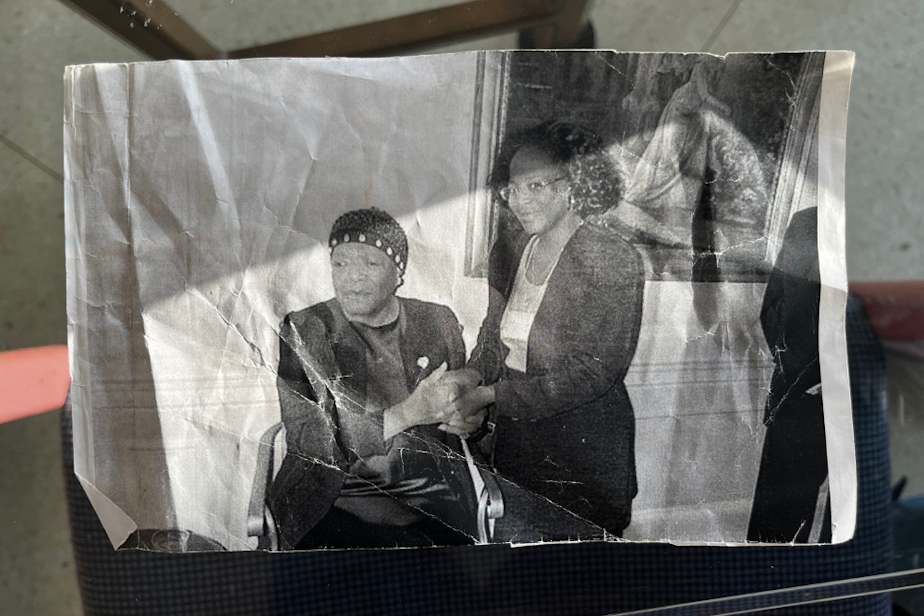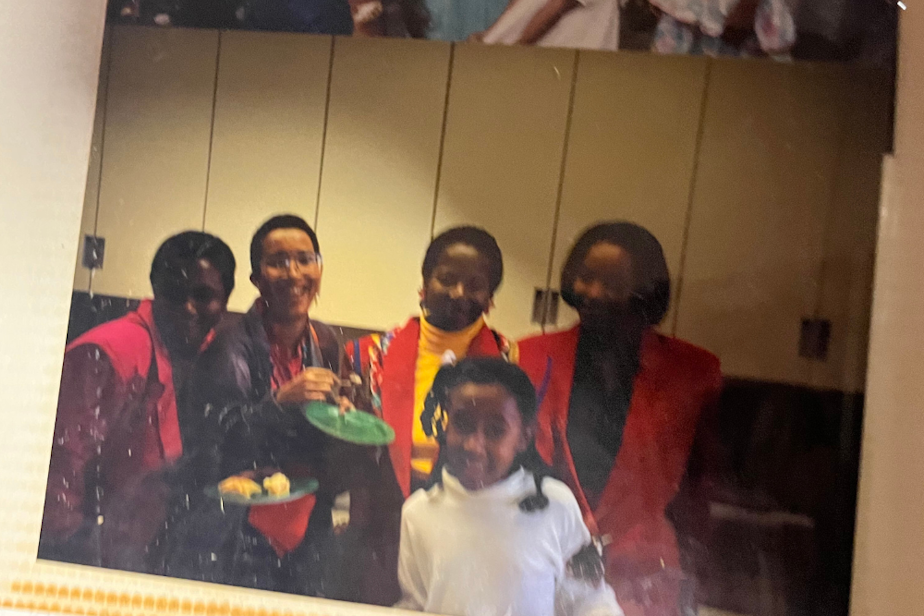The legacy of Seattle's Odessa Brown Clinic

Seattle Children’s Hospital released an independent assessment of its anti-racism action plan on May 24, which has completed its first phase.
Among several challenges within the report was the still rocky relationship with the Odessa Brown Clinic. A new clinic in Othello began serving patients in March of 2022. But the historic Central District location has been closed for over a year. Hospital officials said the building needed major repairs.
RadioActive’s Indigo Mays explores the history, recent controversy, and legacy of the Odessa Brown Clinic.
[RadioActive Youth Media is KUOW's radio journalism and audio storytelling program for young people. This story was entirely youth-produced, from the writing to the audio editing.]
G
rowing up, I loved going to the doctor’s office, mine being at the Central District Odessa Brown Children’s Clinic.
I got to miss school, do fun tests with stethoscopes and scales, and I’d always bump into friends. My mom Sharon Chism’s favorite part was the waiting room.
“We would wait near the fish tanks where you guys would be able to explore books,” Chism said.
Right now, a core piece of the waiting room is missing: the kids.
Sponsored
[This RadioActive story inspired an hourlong episode of Soundside with a deep-dive into the history and future of the Odessa Brown Clinic. Listen to the Soundside episode here.]
The beloved Odessa Brown location is in Seattle’s historically Black Central District neighborhood. Winona Hollins-Hauge, a community member and former Black Panther, said it was always a big community hub.
“[The] Odessa Brown community, the Black Panthers community, and Goodwill Baptist church. All of us were kind of in the Odessa Brown sphere,” Hollin-Hauge said.
The clinic we know today, centered around community care, is named after the person who envisioned it: Odessa Brown. She was a beautician who worked in the 1960s and advocated for child health in the Central District.
Sponsored
According to Hollins-Hauge, the community advocated to secure the clinic’s first home, a couple of blocks from the 23rd and Yesler location.
“All the Black community came together to purchase that land where Odessa Brown sits,” Hollins-Hauge said.
The original patients of the clinic have remained an integral part of its functions through the Friends of Odessa Brown Guild. It gives the older generation a voice in clinic matters and compensates care for low-income families.
Sponsored
From the beginning, Odessa Brown's pro-Black healthcare environment has attracted patients and staff alike, such as Dr. Ben Danielson. He was the medical director of the clinic for over twenty years.
It was a dream job for him — a true village. Those who supported the patients were supported by their coworkers, and in many ways, the patients themselves supported and inspired their doctors.
“You saw this sense of just brilliance and possibility and potential energy in so many young people,” Danielson said. “It was always inspiring in that way.”

Despite extraordinary doctors like Danielson, some things require so much more than what the Odessa Brown Clinic can offer. Systemic racism in healthcare is a pervasive force for patients and doctors of color alike. Danielson describes it as an ever-present erosion that digs away at you.
Sponsored
“I watched the way families after families are treated by Seattle Children's Hospital, and it had this eroding effect,” Danielson said.
The Odessa Brown Clinic has been under the umbrella of Seattle Children Hospital’s for 53 years. Frustration erupted towards the end of 2020, when Danielson stepped down as medical director of Odessa Brown, citing racism from Seattle Children’s as the cause.
Demands for change within Seattle Children’s led to an investigation, and eventually an action plan. A recently released assessment of that action plan affirms that the hospital has made progress, but also highlights four ongoing challenges. Among them is a fragile relationship with the Odessa Brown community. This ongoing distrust has left the new Othello Odessa Brown Clinic location in the limelight.
Located across from the Othello light rail station, the new location sits in a black building with artistic blue, purple, and orange highlights. The new clinic has maximized the feeling of community with its town hall-like setup. It’s equipped with food, diapers, and other mutual aid.
Danielson says the new clinic was opened in response to families of color being pushed out of the old neighborhood.
Sponsored
“We kept watching gentrification really make it harder and harder and harder for Black families, low-income families, the families that our clinic had served forever,” Danielson said. “It's harder for them to stay in the central area.”
The same year the new clinic opened, the old location temporarily closed for building maintenance. So far, no announcements have been made on when the original clinic will reopen. This has raised concerns for many, including Winona Hollins-Hauge.
“I hope that they have the goodwill and the integrity to keep Odessa Brown and the property that Odessa Brown is on functioning,” Hollins-Hauge said.
Hollins-Hauge wants the blood, sweat, and tears that went into creating the clinic’s original site to be honored.
I’ve found out that my excitement for going to the doctor’s office is something that few people of color resonate with, because of the long-standing neglect of brown people in healthcare.
Places like Odessa Brown are essential to preserving Black wellness and repairing institutional racism in the healthcare system, as noted by my mom Sharon Chism.
Odessa Brown "was a place of safety,” my mom said. “So hearing about some of the challenges more recently and what that means for the communities that they are now not in is unsettling.”
The waiting room of the historic clinic has not re-welcomed its patients. But hopefully, its keepers will stick to the promise of reopening and keep the amazing legacy of Odessa Brown thriving.
This story was produced in a RadioActive Youth Media Advanced Producers workshop for high school and college-age youth. Production assistance by Brooklyn Jamerson-Flowers. Edited by Kate Walters. Prepared for the web by Alayna Ly.
Find RadioActive on Instagram, TikTok, YouTube and Facebook, and on the RadioActive podcast.
Support for KUOW's RadioActive comes from the Bill & Melinda Gates Foundation Discovery Center and BECU.



